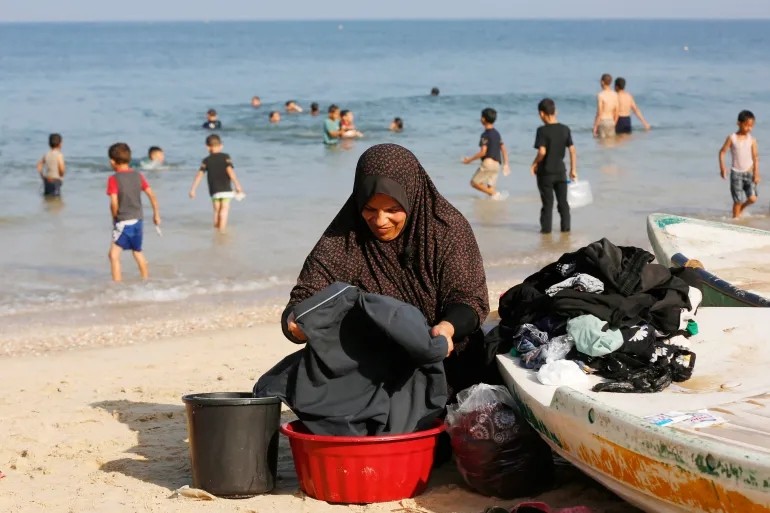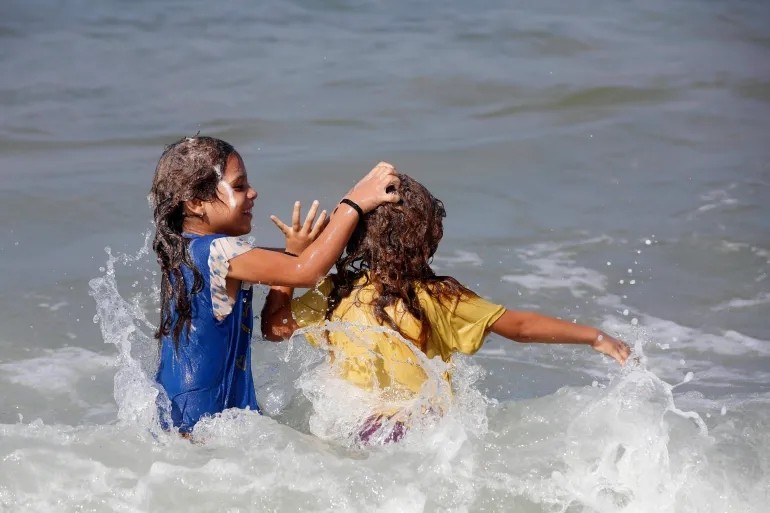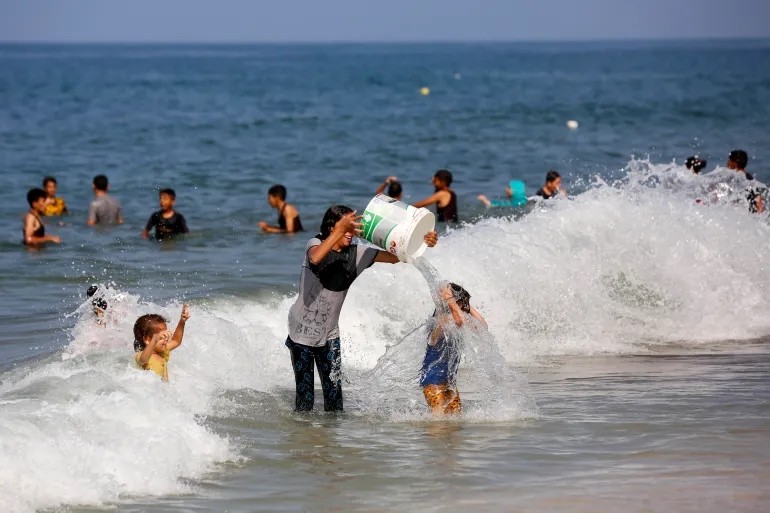Ms. Andaleeb al-Zaq, one Gazans, said they were thankful for the sea and its salty breeze. Because there was no running water, Deir al-Balah’s family had to evacuate to polluted sea water to bathe and wash.
The 48-year-old woman said her family, a total of 16 members, had to leave their home in the Shujaiya area, east of Gaza City, immediately after Israel began bombing the Gaza Strip on October 7.
They headed south to the central province of Deir al-Balah and made their way to Alif Primary Boys’ School, run by the United Nations refugee agency.
“All the classrooms were filled with other families, about 80 people per class, so we set up tents on the school grounds,” Andaleeb said. There are 8,000 people sheltering there.”
| Displaced Palestinians in the central Gaza Strip had to use the sea to wash clothes and bathe despite the risk of Israeli airstrikes. Photo: Al Jazeera. |
The school is located near the Mediterranean Sea and because there is absolutely no clean water, some families and their children are forced to Go to the beach to bathe and wash clothes.
“We have no water, no sanitation, no wastewater treatment system,” said Ms. Imm Mahmoud, an evacuee at Alif Primary Boys School. With status lack of basic toilet water Here, neither adults nor children feel comfortable.”
 |
| Gazans take their clothes to the beach to wash. |
The 52-year-old woman said she had no choice but to wash her family’s clothes at sea even though she knew that even sea water is polluted.
“Children suffer from diarrhea, coughs and colds due to pollution and swimming in the sea,” said Ms. Imm Mahmoud.
 |
| Two girls wash each other’s hair in the Mediterranean Sea, east of Deir al-Balah, central Gaza Strip. Photo: Al Jazeera. |
Even before the current war, inadequate sanitation infrastructure and electricity shortages meant that untreated wastewater was being dumped into the sea – between 100 and 108 million liters – and was the cause of cause more than a quarter of all illnesses. This is the main cause of illness among children in the Gaza Strip.
According to the Norwegian Refugee Council, the complete closure of wastewater treatment plants in October in Gaza resulted in the release of more than 130,000 cubic meters of untreated wastewater into the Mediterranean Sea every day, causing serious danger to the environment.
 |
| Despite the dangers lurking, displaced families in Gaza say they will continue to swim in the sea because they have no other choice. Al Jazeera. |
Three major water pipelines in the Gaza Strip are all controlled by Israel. As of October 8, the pipeline from Israel to northern Gaza remains closed. To the south, Israel reconnected water supplies to Khan Younis on October 15 but cut off water supplies two weeks later.
And in the central Gaza Strip, Israeli authorities confirmed their intention to restart water supplies on October 29, but residents say that did not happen and the water flowing into taps had high levels of chlorine. or salty.
Despite the dangers lurking, displaced families in Gaza say they will continue to swim in the sea because they have no other choice.

